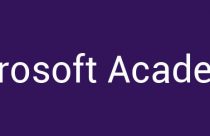Effective Use of Google Scholar for Your Academic Research

It Started with So Much Promise
When Google Scholar (GS) first launched in November 2004, the academic search engine seemed to offer so much promise — the ability to search academic databases with the same ease of use of the original ‘Mother Google’ search engine.
Research students fell in love with the conceptual theory, but the reality was, as many librarians were forced to point out on multiple occasions, not quite there yet.
The amount of academic research that was accessible during GS’s early days was limited to say the least. Of course, that has improved in the last decade, but the question remains as to the extent to which GS can be counted on to deliver a rigorous systematic review of available academic literature on a chosen topic.
But There’re User Complaints and Frustrations
Much of the frustrations about using Google Scholar can be classified according to the research expertise of the user:
- Students respond well to the familiar feel of using Google Scholar, but express frustration at the clear dominance of natural sciences over social sciences and the humanities.
- Students looking for full-text versions of articles are often presented with similar versions of the article from multiple sources (the author, the publisher, and however many databases give GS access to their index and archives). This makes it difficult to identify official versions as opposed to pre-print or corrected versions.
- Academic Librarians seeking to assist researchers in creating literature reviews are frustrated with the current inability to filter-out predatory journal content and open access material. Whether or not the material is peer-reviewed is not always made clear, and there is no way to filter the search by peer-reviewed journal.
- Research Scientists continue to be frustrated with the limitations of GS’s preference for post-hoc searches. In other words, rather than producing a robust systematic review of available literature on a topic, Google Scholar performs best when you know what you’re looking for in advance. This can be helpful in tracking down a specific article (especially a free version), but it’s not much use if you’re just beginning to compile your literature review.
Forget the Pros & Cons — Just Understand What You’re Working with
The advice I give to my students is to proceed with caution. The ease of use of Google Scholar is definitely attractive, but since Google has made no firm commitment to filtering out predatory journals and other pseudo-science sources, much of the material that will appear in your search may well be of poor academic quality. That being said, however, Google Scholar can still be a valuable resource when you are just beginning your search.
Just as Wikipedia is treated dismissively for the lack of a peer-review process, it is still a great place to start your research. You may not be able to take all the material as gospel, but you can at least find some good references to author peer-reviewed material — just don’t list Wikipedia as a peer-reviewed source in your bibliography.









